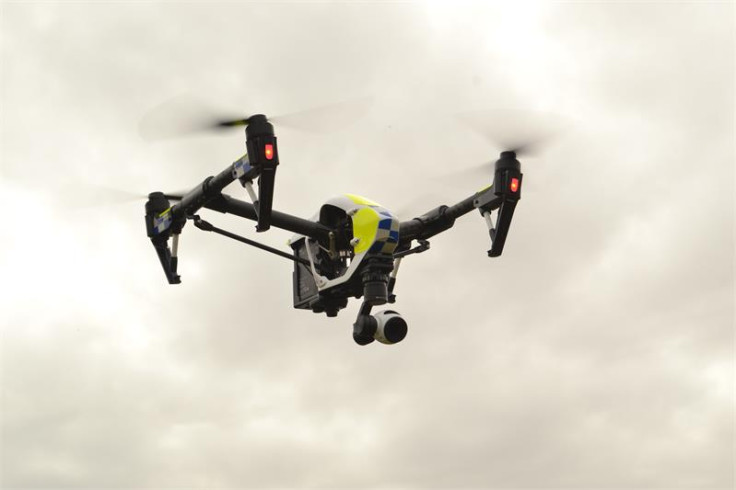UK military worry over drone spying and safety as UAV users told to alert Royal Navy before they fly

If you want to fly a drone anywhere over Devon or Cornwall, you're going to need to let the Royal Navy know, regional police in the UK are warning. Devon and Cornwall Police has been forward thinking by operating a special Twitter outreach account specifically for unmanned aerial vehicles (UAV) since November 2015, coinciding with the force's six-month-long trial using drone technology to assist with police work.
But now Devon and Cornwall Police is saying that all drone users need to inform the Royal Navy prior to flying a UAV.
A tweet issued by the @DC_PoliceDrones on 29 April said: "Flying a #drone in #Devon or #Cornwall? Please call @RoyalNavy Culdrose Ops on 01326 552415 so they can let their aircraft know for safety."
One would think that flying a drone for recreational purposes in your back garden or a field would be fine and you shouldn't need to inform anyone before doing so, but according to local newspaper West Briton, Devon and Cornwall Police means everyone because military aircraft in the area could be impacted.
Flying a #drone in #Devon or #Cornwall? Please call @RoyalNavy Culdrose Ops on 01326 552415 so they can let their aircraft know for safety.
— D&C Police Drones (@DC_PoliceDrones) April 29, 2016
Multiple military operations in Devon and Cornwall
"It's important to note that the aim of contacting the Royal Navy isn't to ask them for permission to fly, but rather by giving them notification of your flight, [so] they can then let their pilots know prior to them taking off, so that where able, they can avoid the area where you want to fly," John Tansley, managing director of No Fly Zone UK, a real-time database of flight restrictions and no-fly-zone requests from individuals, told IBTimes UK.
"Devon and Cornwall is in close proximity to a number of military establishments, such as RNAS Culdrose, which is one of the main helicopter squadron bases in the UK, and about 10-25 sorties [helicopter flights] take off a day.
"They also operate jets from there as well, so it's quite a large training establishment for helicopters and jets as well. If you were operating a drone 2 miles away from the base at a height of 300-400ft, for example, then there is a risk that if helicopters from Culdrose were taking part in search and rescue training, they could well be flying at under 500ft."
Military increasingly worried about UAV threats
But it's not just the risk that civilian UAVs might get into an accident with military aircraft that's at stake – there's also the issue that drones armed with cameras flying over restricted military zones, like the HMS Raleigh Royal Navy training base or the HMNB Devonport naval base, which is one of the UK military's biggest naval dockyards, could easily capture information about classified projects.
According to Tansley, who was previously an electronic warfare expert in the Royal Navy and also worked with the Metropolitan Police, military officials in both the US and UK are now increasingly worried about how drones can be used to infiltrate military bases.
The issue has led to a rise in companies seeking to provide anti-drone hardware solutions, such as Drone Defence, which offers counter-UAV detection and multi-sensor, multi-modular detectors to warn mission command about unwanted drones. No Fly Zone will be updating its database to ensure that all daily flight restrictions and situations are updated 24 hours a day, seven days a week to keep UAV pilots informed.
"It's a very real concern for the military and security forces right now. They're very concerned about it − it's a race to see whether the government will be first to prevent UAVs from being used criminally, or whether criminals will be first to use UAVs to carry out a crime, such as surveillance purposes or attacking someone using a UAV, as it's much easier to get a drone, than it is to get a firearm in the UK," said Tansley.
© Copyright IBTimes 2025. All rights reserved.






















